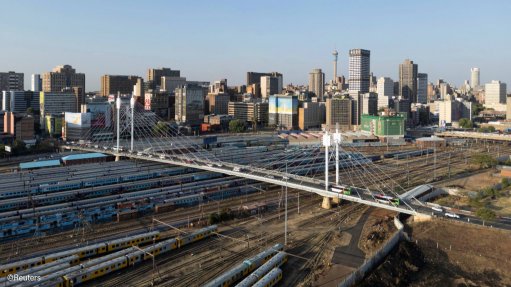Business
South Africa’s Business Activity Declines for Fourth Straight Month – PMI Report

South Africa’s private sector contracted for the fourth month in a row in March, as businesses continued to face declining demand, policy uncertainty, and weak consumer spending.
According to the latest S&P Global South Africa Purchasing Managers’ Index (PMI), business activity fell further, with the PMI dropping to 48.3 from 49.0 in February. Any reading below 50.0 signals a contraction, and March’s figure marks the second-lowest level since July 2023.
Why South Africa’s Business Activity Is Declining
The latest PMI report paints a challenging picture for businesses in South Africa:
-
Declining Output: Companies scaled back production due to lower new orders and completed contracts without securing new business.
-
Weak Consumer Spending: With high unemployment and rising living costs, households cut back on spending, impacting business revenue.
-
Policy and Political Uncertainty: Businesses are uncertain about domestic fiscal policies and global trade conditions, making them hesitant to invest.
David Owen, senior economist at S&P Global Market Intelligence, noted:
“The March PMI figures confirmed a full quarter of declining business conditions in the South African private sector. Demand levels continued to fall in March, with some businesses citing concerns over fiscal policy and global trade as key reasons for lower consumer spending.”
New Orders Decline but International Demand Improves
One of the most worrying trends in the PMI report was the sharp drop in new orders, a sign that businesses are struggling to secure fresh demand. However, there was a small increase in international orders, particularly from other African countries.
This indicates that while domestic demand is weakening, South African businesses are still finding some opportunities abroad.
A Silver Lining: Cost Pressures Ease
Despite the ongoing downturn, one positive takeaway from the report is that cost pressures have started to ease. The PMI survey found that:
-
Input price inflation fell to a five-month low, meaning businesses faced lower costs for raw materials and services.
-
The rand’s improved exchange rate helped businesses offset supplier cost increases.
-
For the first time since October 2024, selling prices marginally declined, which could help consumers facing high inflation.
What’s Next for South Africa’s Economy?
The four-month contraction in business activity raises concerns about South Africa’s economic growth outlook for 2025. If the trend continues, it could lead to:
-
Lower business investment as companies hold back on expansion.
-
Potential job losses in sectors struggling to maintain demand.
-
Reduced tax revenues, making it harder for the government to balance its budget.
However, the stabilization of cost pressures and a slight uptick in international demand could provide some relief. If the rand remains stable and global economic conditions improve, South Africa’s business environment could see gradual recovery in the coming months.
For now, businesses will need to navigate ongoing economic and political uncertainties as they adapt to a more challenging landscape.
{Source BusinessTech}
Follow Joburg ETC on Facebook, Twitter , TikTok and Instagram
For more News in Johannesburg, visit joburgetc.com

















